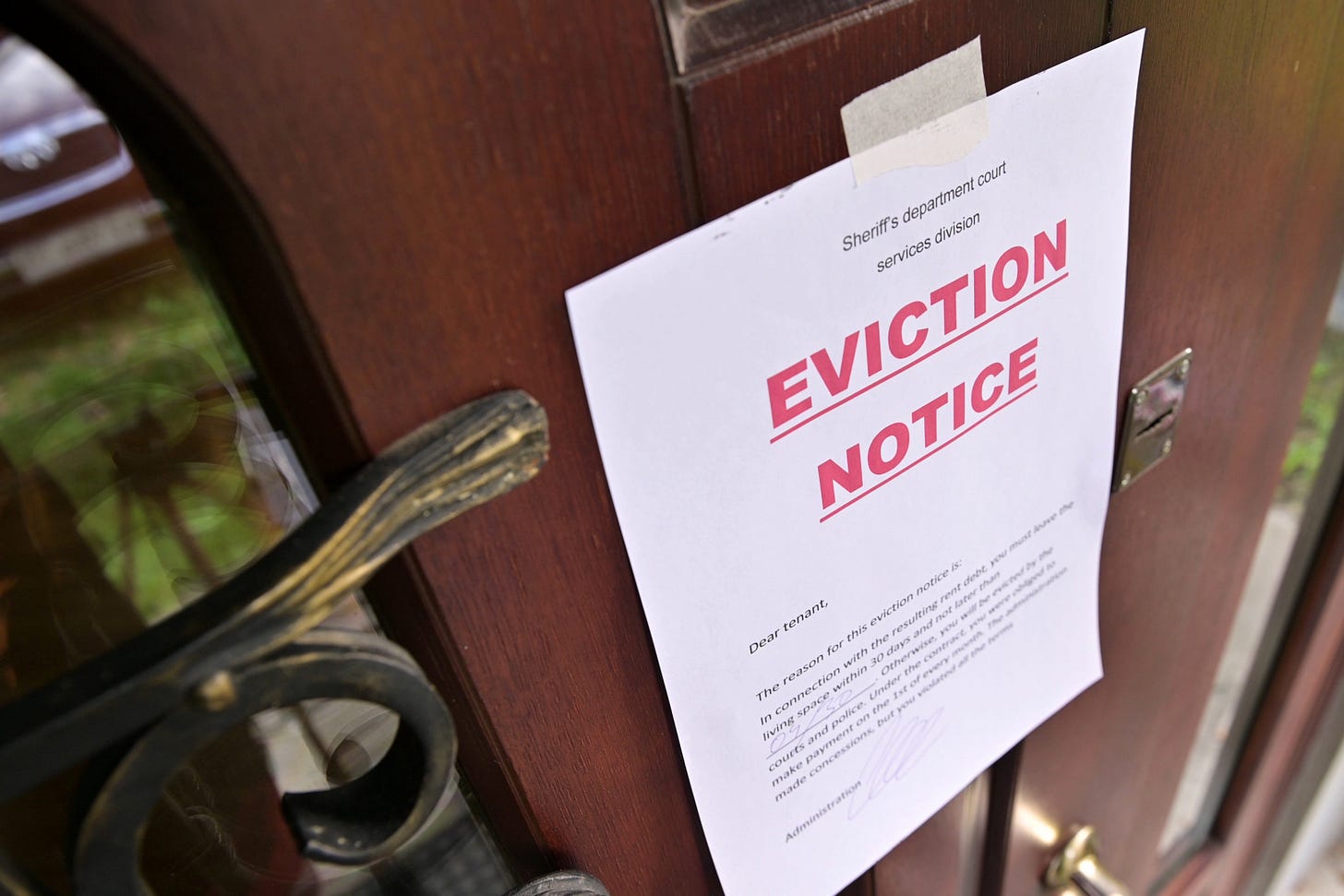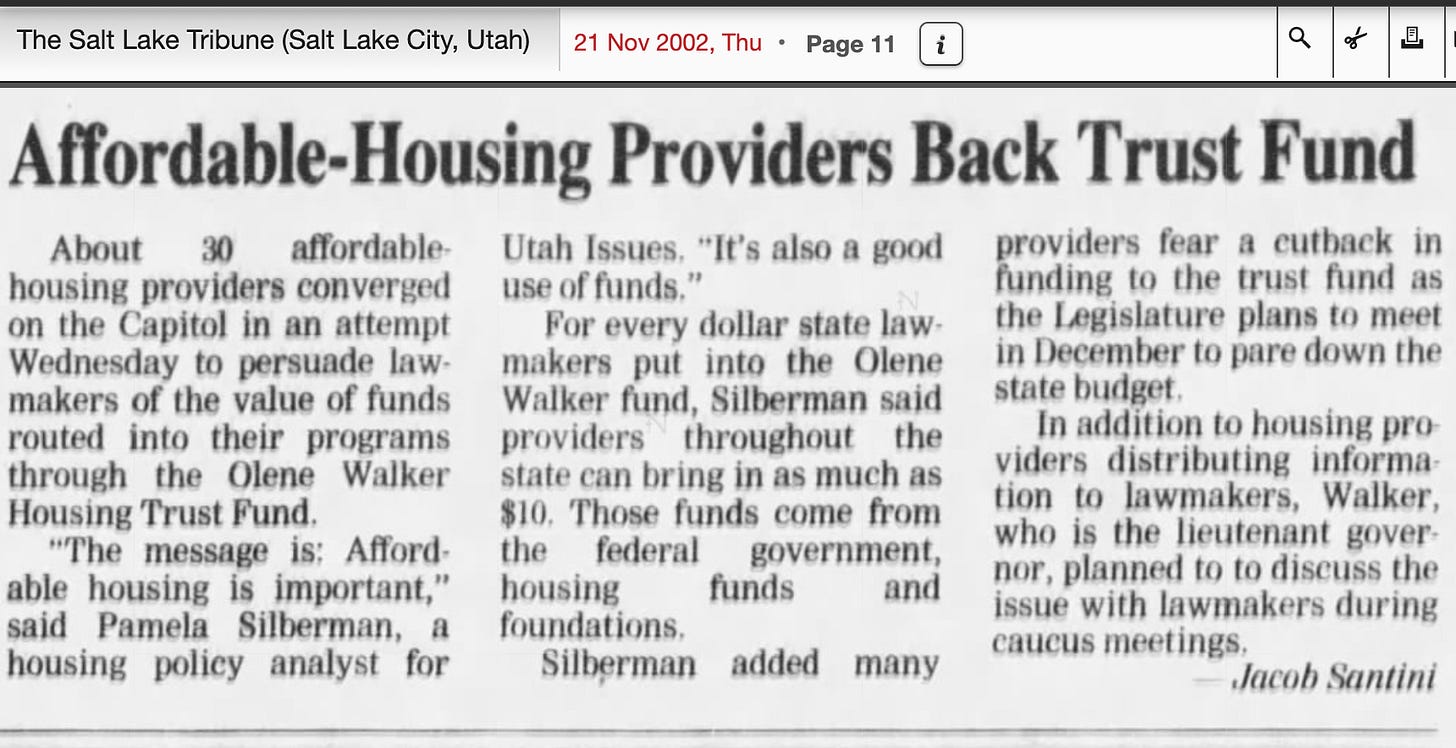The Real Estate Industry Is Successfully Lobbying Local Media to Ditch the Term “Landlord” for “Housing Provider”
Landlords are not protected or oppressed class—their identity preference is irrelevant.
Last week, a curious exchange between a Chicago housing advocate and a local Chicago NBC reporter on Twitter caught my eye:
Here’s a local reporter (who we won’t pick on here too much because he’s pretty low on the food chain) admitting he’s chosen to adopt a term preferred by landlords in the interests of fairness. And he’s not alone: Increasingly, reporters, pundits, and editors are allowing landlords to rebrand themselves “housing providers” in a troublesome and cynical trend of faux identity politics.
But landlords do not comprise a vulnerable or protected class; they are not dispossessed, historically marginalized, or a minority group in urgent need of reclaiming their humanity. The instinct to let groups of people define themselves is a good and liberal one, but the landlord lobby isn’t an Indigenous or transgender or homeless group; it’s not an oppressed class for whom reclaiming a narrative is a step toward rectifying a social wrong. It’s a bunch of extremely rich and cynical assholes who hire other rich and cynical assholes to spin its bad image to credulous media outlets.
Take a fairly brazen example from this summer, an op-ed in the Columbus Dispatch headlined, “Opinion: 'Landlord' feudal, outdated term that help paint housing providers as villains.” It’s a useful object lesson in how PR and lobbying groups are increasingly adopting the language of liberal affect to serve the interests of the wealthy. It reads, in part:
First of its kind legislation has been proposed in Ohio to change references in state law from “landlord” and “tenant” to “housing provider” and “resident.”
Oddly, the proposal will prove controversial. It would mean feudal terminology would be replaced in order to reflect the real relationship between people who provide and who need housing. Often, housing providers in Ohio and the United states are small family-owned businesses, not powerful land barons. Updating language is an important first step to accurately reflect this in the law, and it should lead to better policy.
The piece is written by Roger Valdez, who is simply referred to as the “director of The Center for Housing Economics, a Seattle-based policy center researching progressive supply-side solutions to housing scarcity.” The vague disclaimer notes that “in Ohio, the center is working with the Ohio Real Estate Investors Association on a proposal to change housing terminology in state law.”
Not mentioned: The Center for Housing Economics is really Seattle for Growth, a 501(c)(4) advocacy group (lobbying front) funded by real estate developers, whose board of directors is a who’s who of Seattle real estate moguls. Lopez, our “progressive” board president, serves alongside bold progressive voices like Morris Groberman of First Western Properties, Keith Hammer of Northwest Investment Group, Scott Shapiro of Eagle Rock Ventures, Mark Knoll of Blueprint Capital, Dan Duffus of BluePrint capital, and Erich Armbruster of Ashworth Homes
These are the bleeding hearts super concerned about the “feudal, outdated term.” Lopez insists he’s advocating on behalf of “small businesses” and “people of color serving other people of color,” yet strangely is funded by generic multimillionaire white men. As we documented in a recent episode of Citations Needed, the almost entirely white and male real estate lobby is increasingly attempting to paint itself as a champion of “landlords of color” to pass laws that disproportionately benefit rich, white real estate developers. This will, invariably, result in the eviction of people who are disproportionately people of color.
It’s worth noting that the Columbus Dispatch was, for years, owned by a commercial real estate firm. Local news is very often either owned by, invested in, or heavily dependent on ad revenue from the real estate industry, as we discussed in episodes 54 and 85 of the podcast I co-host, Citations Needed. This entanglement fuels local media’s often hysterical and disproportionate crime coverage that, itself, serves the interests of the real estate industry—which consistently pushes for over-policing. Indeed, there’s an increasingly robust field of research showing that over-policing is driven by the interests of real estate, which aims to make life unlivable for “unwanted” populations that are that are in the way of gentrification. You can read the research here or you can check out our our Citations Needed interview with one of the studies’ authors here.
There are countless examples. Just to limit the scope of inquiry, let us focus only on local Chicago media.
As the Chicago-based Autonomous Tenants Union notes, CBS Chicago refers to “Housing providers” in its softball coverage of recent efforts to end eviction moratoriums. In just one article from May 2021, reporter Lauren Victory writes “Housing provider Mike Glasser” to describe a big real estate player—the president of the Neighborhood Building Owners Alliance. She goes on to say, “NBOA represents housing providers for more than 70,000 apartments in the Chicago area.” Victory also employs the close cousin of gloss-lens pro-landlord labels, “homeowner,” when describing an effort to clear out “squatters.”
“Housing provider” is used four different times in another October 3 CBS Chicago article celebrating the end of the eviction moratorium. The Chicago Sun Times, Patch.com Chicago, Chicago’s PBS affiliate, Daily Herald, and the aforementioned NBC News Chicago have all used the real estate lobby euphemism “housing provider” in recent months.
Many of the pieces using “housing provider” featured quotes from Chicago real estate lobby organs such as Neighborhood Building Owner's Alliance. This indicates reporters are being pushed to use the new label by real estate lobbyists. Since the usage extends across multiple outlets and various reporters, it’s clear editors are beginning to adopt the industry’s chosen go-to Orwellian phase, either consciously or subconsciously.
And this is just Chicago. Countless examples in other cities can be seen with a cursory google search. Clearly the real estate lobby’s PR efforts to rid writers’ work of the allegedly pejorative “landlord” is gaining traction, and this should worry those advocating for housing as a human right.
The label landlord—like “boss” or “prison guard” or “eviction court”—has earned its unseemly reputation because tens of millions of people have had bad interactions with their landlords. Landlords profit off what should be a basic human right, and while some are no doubt nice and even fewer are not millionaires, a great deal are, and this is why, in the aggregate, the real estate lobby is making such effort to purge the term from media reports on their anti-poor policies. There’s a reason the uptick of the term “housing provider” correlates with efforts for landlords to end Covid eviction moratorium—it’s because they’re trying to soften the blow for lobbying for cruel policy proposals making it easier to evict people.
To be clear, “housing provider” and “affordable housing providers” as terms have existed for decades, historically in the context of nonprofit efforts, federal initiatives, or foundations that subsidized cheap housing for the poor. Here’s a typical headline from 20 years ago:
But, at some point along the way, “housing provider” as a social justice or charity term morphed into a catch-all warm and fuzzy label for those who commodify housing—e.g. those who own homes for the primary purpose of generating profit. Knowing this, over the past few years, the real estate lobby is deliberately blurring the line—attempting to create an image of itself as just a bunch of 96-year-old Jimmy Carters hammering nails to house the needy.
But as writer and co-founder of LA Tenants Union Tracy Jeanne Rosenthal wrote for Commune Magazine in 2019, “Landlords don’t provide housing, they extract rent from housing. Developers don’t provide housing, they speculate on housing.”
Builders build houses, more often than not, maintenance people fix them, electricians wire them, largely immigrant women domestic workers clean and maintain them, plumbers provide reliable sanitation. These are who ultimately “provide” housing in any meaningful sense. If our media is going to call landlords “housing providers” then, at the very least, it must also refer to these workers as “housing providers” since they—by building, maintaining, crafting, wiring, fixing, and cleaning our rental homes—do far more to provide housing than landlords ever could.




Most mom and pop landlords are far from rich. Unless of course, your definition of rich is that we, through working at a back breaking grueling blue collar job, get to eat everyday along with living in a house that we are rehabbing which has heat and running water
So basically, its ok to define another group of people for them, as long as they are first caraicaturized, dehumanized and dismissed. This article is its own best argument in opposition.